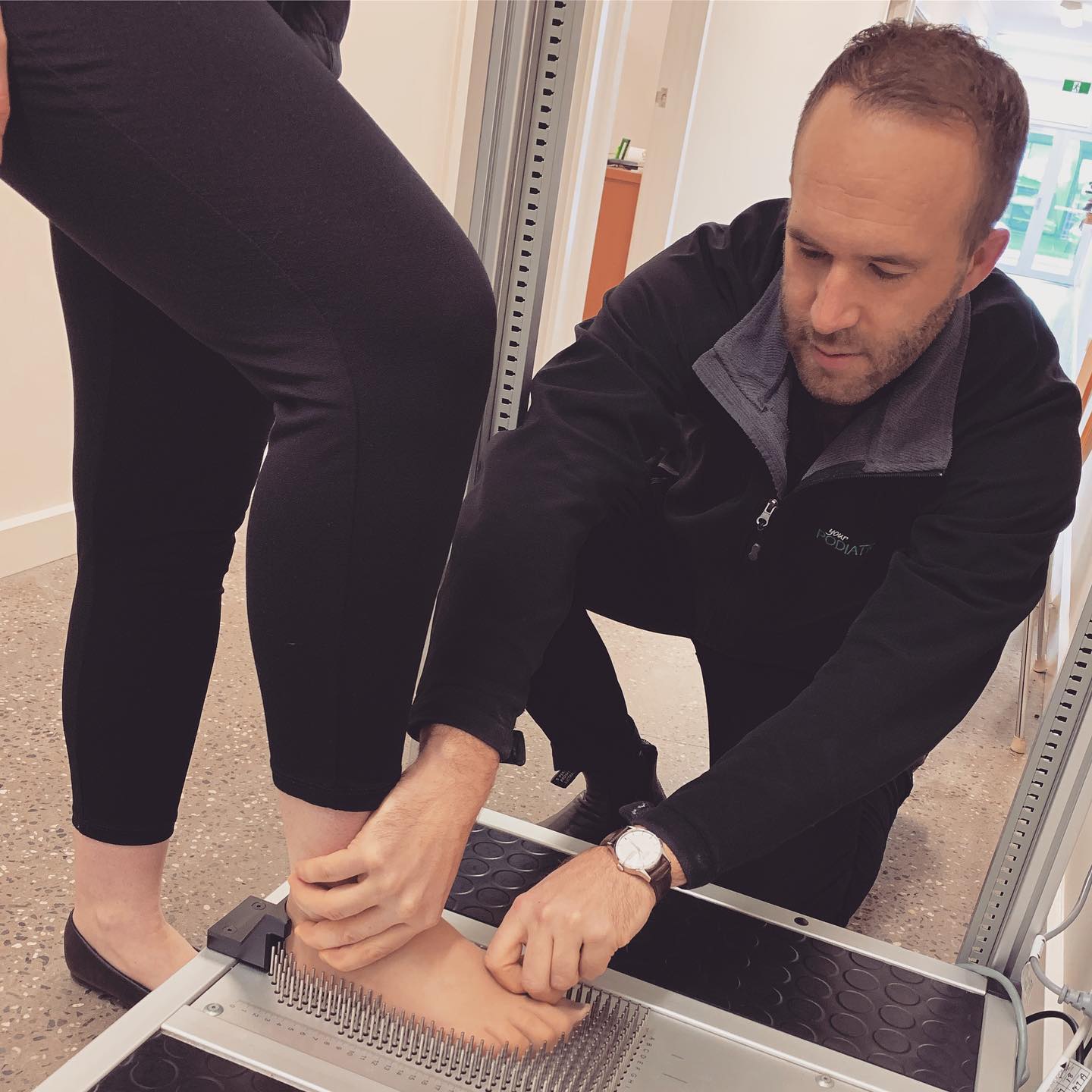The Mystery of the Weird Feeling in Foot: Unraveling the Causes
If you’ve ever experienced an unexpected and unexplainable sensation in your feet that’s neither ticklish, nor painful, but just plain unusual, you’re not alone. The “weird feeling in foot,” as non-technical as that may sound, is an all-too-common occurrence that often leaves people scratching their heads and their toes. Understanding this enigmatic sensation is more than just a creature’s comfort; it’s a pursuit that could unlock vital clues to a healthy and active life. In this comprehensive guide, we untangle the web of possible culprits behind this strange foot phenomenon, shedding light on this often overlooked but integral part of the human body.
Defining the Weird Foot Feeling
The weird foot feeling encompasses a broad range of sensations that can be difficult to pinpoint or describe accurately. Often, individuals report a feeling that is akin to their feet not fully belonging to their body or experiencing an unusual tingling that doesn’t fit the classic description of “pins and needles” associated with a limb falling asleep. Some describe it as feeling as though their feet are wrapped in a thin, invisible layer that slightly distorts sensory perception.
Variations in the experience and severity of this peculiar sensation can be vast. For some, it’s a minor nuisance that comes and goes without much impact on daily life. For others, it can be more persistent and pronounced, affecting their ability to walk, wear certain types of footwear, or even standing still for prolonged periods. The variability suggests that the weird foot feeling may not have a one-size-fits-all explanation and could be the result of multiple interacting factors.

Weird Feeling in Foot
Possible Causes
Exploring the possible causes of the weird foot feeling is akin to piecing together a complex puzzle. This sensation could stem from a variety of factors, ranging from the purely physiological to the psychological.
- Nerve Compression: One of the leading theories is that this feeling arises from the compression of nerves in the foot. This compression can be due to various reasons – from wearing tight shoes to standing or sitting in a certain position for an extended period.
- Poor Circulation: Reduced blood flow to the feet can also lead to unusual sensations. Activities that hinder circulation, such as crossing legs for too long or conditions like peripheral artery disease, could be culprits.
- Vitamin Deficiencies: Another possible explanation is a deficiency in vitamins, particularly B12, which is essential for nerve health and function. A lack of this vitamin can lead to odd sensations in the feet and other parts of the body.
- Stress and Anxiety: Mental health can significantly impact physical sensations. Stress and anxiety sometimes manifest physically as inexplicable sensations, including the weird foot feeling.
- Skin Conditions: Certain skin conditions, such as athlete’s foot or eczema, can cause unusual feelings in the feet without the classic symptoms of itching or pain.
- Underlying Medical Conditions: Finally, it’s worth considering underlying medical conditions. Multiple sclerosis, diabetes, and fibromyalgia are known to cause peculiar sensations in the extremities as part of their symptomatology.
Unraveling the cause of the weird foot feeling in any individual involves a comprehensive look at their overall health, lifestyle, and possibly a consultation with a healthcare professional. Identifying the root cause is crucial in finding an effective remedy or management strategy.
The Role of Lifestyle Factors
The impact of lifestyle factors on the weird foot feeling cannot be overstated. Daily habits and choices significantly influence our overall health, including the well-being of our feet. Simple modifications in lifestyle can sometimes alleviate, if not completely eradicate, this baffling sensation.
- Footwear Choice: The type of shoes we wear plays a pivotal role. Opting for well-fitting, comfortable shoes with adequate support can prevent nerve compression and improve circulation.
- Physical Activity: Regular exercise enhances blood flow throughout the body, including the feet, which may help in reducing abnormal sensations. Activities like walking, cycling, or swimming are particularly beneficial.
- Dietary Considerations: A balanced diet rich in vitamins and minerals supports nerve health. Ensuring an adequate intake of Vitamin B12, known for its critical role in neurological function, may prevent or mitigate the weird foot feeling.
- Stress Management: Since stress and anxiety can manifest as physical symptoms, including in the feet, adopting stress reduction techniques such as yoga, meditation, or deep-breathing exercises can be helpful.
- Proper Hygiene and Foot Care: Regularly washing your feet, keeping them dry, and treating any skin conditions promptly can prevent sensations caused by infections or irritations.
By addressing these lifestyle factors, individuals may not only find relief from the weird foot feeling but also enjoy an improved quality of life. It’s a holistic approach that underscores the interconnectedness of our body’s systems and the importance of overall health and well-being.
Medical Conditions Associated with Unusual Foot Sensations
While the weird foot feeling can often be attributed to lifestyle factors or temporary conditions, it is essential to consider the possibility that more serious medical issues could be at play. These medical conditions can cause unusual sensations in the feet, ranging from mild tingling to severe pain or numbness, significantly impacting an individual’s quality of life. Below are some medical conditions commonly associated with these kinds of symptoms:
- Diabetes: One of the hallmark symptoms of diabetes is peripheral neuropathy, a type of nerve damage that can cause tingling, pain, or numbness in the feet and hands. This condition results from high blood sugar levels damaging the nerves over time.
- Multiple Sclerosis (MS): MS is a chronic illness involving the central nervous system. It can lead to various symptoms, including unusual sensations in the limbs, such as tingling, weakness, or the feeling of wearing an invisible glove or sock.
- Fibromyalgia: This disorder is characterized by widespread musculoskeletal pain accompanied by fatigue, sleep, memory, and mood issues. Some people with fibromyalgia experience a unique sensation in their feet and other parts of their body.
- Rheumatoid Arthritis (RA): RA is an autoimmune condition that can cause joint pain and damage throughout the body. The inflammation associated with RA can also affect the nerves, potentially leading to uncomfortable sensations in the feet.
- Peripheral Artery Disease (PAD): PAD is a circulatory condition where narrowed blood vessels reduce blood flow to the limbs. This condition can lead to symptoms like leg pain when walking and can contribute to abnormal sensations in the feet.
- Lyme Disease: Caused by the Borrelia bacterium, Lyme disease is transmitted to humans through the bite of infected ticks. Neurological manifestations can occur, sometimes leading to tingling or numbness in the extremities.
Understanding the underlying medical conditions associated with unusual foot sensations is crucial for proper diagnosis and treatment. If you experience persistent or severe symptoms, seeking advice from a healthcare professional is essential to rule out these conditions, ensuring timely and appropriate management and care.

Weird Feeling in Foot
The Importance of Proper Foot Care
Good foot care is paramount to maintaining not just overall foot health, but also to support one’s general well-being and lifestyle. The feet are a foundational part of our body, supporting its weight and allowing us to walk, run, and stand. However, they are often neglected until problems arise. Regular and thoughtful care can prevent a range of foot-related issues, from infections and skin conditions to structural problems that can impede mobility.
Adopting a routine that includes checking the feet daily for cuts, blisters, or signs of infection, keeping the feet clean and moisturized, and trimming nails properly can significantly reduce the risk of common foot problems. Furthermore, paying attention to the choice of socks and shoes can also contribute to foot health, ensuring proper fit, support, and breathability to prevent unnecessary strain or injuries.
For those with pre-existing health conditions such as diabetes, proper foot care escalates from preventative to critical. Conditions such as diabetes can lead to decreased blood flow and nerve damage in the feet, making it crucial to adopt stringent foot care practices to avoid complications that could lead to severe outcomes, including amputation.
The benefits of proper foot care extend beyond physical health; it can also be a source of relaxation and stress relief. Simple practices such as soaking the feet or gentle massages can improve circulation and promote relaxation. In essence, caring for one’s feet is a simple yet effective way of caring for one’s overall health and well-being, emphasizing the notion that good health truly does start from the ground up.
Seeking Professional Help: When to See a Doctor
While many unusual foot sensations can be managed or alleviated through lifestyle adjustments or home care treatments, there are instances when seeking professional medical advice becomes necessary. It’s important for individuals to recognize the signs that indicate a need for a professional evaluation. These include persistent pain or discomfort that does not improve with self-care, sudden swelling or changes in the coloration of the feet, and symptoms that interfere with daily activities or mobility.
Persistent numbness, tingling, or weakness in the feet may signal underlying health issues, such as diabetes or peripheral artery disease, that require medical intervention. Additionally, if you notice changes in the shape of your feet, develop open sores that do not heal, or if you have severe pain following an injury, these are clear indicators that it’s time to consult a healthcare provider.
Professional evaluation ensures an accurate diagnosis, allowing for targeted treatments that can help prevent further complications. For example, early detection and management of diabetes-related foot issues can significantly reduce the risk of severe outcomes like amputation. Therefore, paying attention to your foot health and recognizing when to seek medical advice is crucial for maintaining overall well-being and quality of life.
Home Remedies and Treatments for the Weird Foot Feeling
When dealing with unusual foot sensations, such as numbness, tingling, or a feeling of discomfort, there are several home remedies and treatments that may offer relief. Here are some effective strategies:
- Warm Baths or Soaks: Immersing your feet in a warm bath can improve circulation and relax your muscles. Adding Epsom salts may further help by reducing inflammation and soothing sore or achy feet.
- Exercise and Stretching: Regular, gentle exercises that involve the feet and legs can enhance blood flow and prevent many conditions associated with poor circulation. Stretching the feet and calves daily is also beneficial.
- Massage: Massaging your feet can stimulate blood flow and provide relief from tingling or numbness. Using essential oils, such as peppermint or lavender, during the massage may add an extra level of relaxation and therapeutic benefit.
- Proper Footwear: Choosing shoes that fit well and provide adequate support can alleviate discomfort. Avoid tight-fitting shoes or high heels that can restrict circulation or pinch nerves.
- Over-the-Counter Pain Relievers: For occasional pain or discomfort, over-the-counter pain medications, such as ibuprofen or acetaminophen, can provide relief. However, they should not be used as a long-term solution without consulting a healthcare professional.
- Vitamin Supplements: Deficiencies in vitamins such as B12, E, and magnesium can contribute to foot discomfort. Consulting with a healthcare provider about appropriate supplementation might help remedy such deficiencies and reduce symptoms.
- Keep Hydrated: Staying well-hydrated is essential for good circulation and nerve health. Make sure to drink plenty of water throughout the day.
- Elevation: If swelling is contributing to the discomfort, elevating your feet can help reduce the swelling and alleviate the sensation.
These home remedies and treatments can be effective for managing mild to moderate sensations of tingling, numbness, or discomfort in the feet. However, they are not substitutes for professional medical advice, especially if symptoms persist or worsen. It’s important to listen to your body and seek out a healthcare provider for persistent or severe foot sensations to ensure proper care and treatment.

Weird Feeling in Foot
Prevention is Key: Tips for Avoiding the Strange Sensation
Preventing unusual sensations in your feet begins with regular, thoughtful care and lifestyle choices that promote overall foot health. Here are several proactive steps you can take to minimize the risk of experiencing discomfort, numbness, or tingling:
- Maintain a Healthy Weight: Excess weight can put additional pressure on your feet, leading to discomfort and a variety of foot problems. Maintaining a healthy weight through diet and exercise can prevent these issues.
- Stay Active: Regular physical activity improves blood circulation and nerve health, which can help avoid the strange sensations often experienced in the feet. Incorporate a mix of cardiovascular, strength training, and flexibility exercises into your routine.
- Healthy Eating: A balanced diet rich in vitamins and minerals supports nerve health and can prevent deficiencies that cause foot discomfort. Foods high in antioxidants, B vitamins, and omega-3 fatty acids are particularly beneficial.
- Quit Smoking: Smoking can damage your circulatory system, affecting blood flow to your feet and increasing the risk of uncomfortable sensations. Quitting smoking is a significant step towards better overall health and happier feet.
- Regular Foot Inspections: Frequently inspect your feet for any signs of change, including skin color, texture, or sensation. Early detection of potential issues enables prompt action, preventing minor problems from escalating.
- Wear the Right Shoes: Invest in high-quality footwear that fits properly. Shoes should provide adequate support, a comfortable fit, and room to move your toes without pinching or restricting blood flow.
- Manage Blood Sugar Levels: For individuals with diabetes, controlling blood sugar levels is crucial in preventing nerve damage (neuropathy), a common cause of tingling and numbness in the feet. Regular monitoring and management of your blood sugar can help avoid these complications.
By incorporating these preventative measures into your daily routine, you can take control of your foot health and reduce the likelihood of experiencing strange sensations in your feet. However, it’s important to remember that everyone’s body is unique, and what works for one person may not work for another. It’s always best to consult with a healthcare professional for personalized advice and guidance on maintaining healthy feet.
Flagstaff Foot Doctors: Anthony Rosales DPM
https://www.google.com/maps?cid=8835841318590452161
421 N Humphreys St, Flagstaff, AZ 86001, United States
(928) 774-4825
https://flagstafffootandankle.com/
